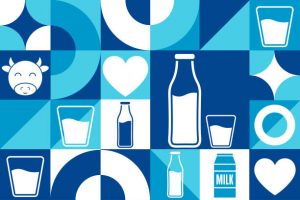Global drinking habits are changing worldwide from a growing teetotal and fruity hard (carbonated) seltzers market to the pandemic trend of ‘drinking from home’.
When you look at the emissions of alcoholic beverages, as a general rule of thumb, the higher the percentage of alcohol, the higher the emissions. Most emissions are in packaging, raw materials, water used in distillation and making these drinks.
The latest study by Kantar suggests that around 70% of alcohol drinkers say their purchase decisions are positively influenced by sustainability.¹
The alcoholic beverage industry faces additional challenges in the UK due to
- Inflation-linked Duty Rise: From February, the duty on alcoholic beverages will rise in line with inflation on all types of alcohol in the UK. A double-digit rise in duty will dampen the demand during a cost-of-living crisis.
- Deposit return scheme: Under the proposal, customers will be charged a flat 20p when they buy a drinks container(PET bottles, Steel and Aluminium cans and Glass drinks bottles), which they can claim upon returning. Scotland will start rolling out this scheme in August 2023 before it’s rolled out to the rest of the UK in 2024.
Let’s look at Diageo, a 200 years old company and the world’s largest spirits maker, on how they are progressing on their sustainable agenda.
Almost half of Diageo’s 25 corporate goals are around environmental sustainability. Sustainability sits within Diageo’s supply chain and procurement function.
For real change, Sustainability should sit within Supply Chain Function
Kirstie McIntyre, Diageo’s Sustainability Director, Global Supply and Procurement.
Diageo’s pioneering grain-to-glass sustainability work is divided into three areas;
- Preserve water for life
- Accelerate to a low-carbon world
- Become sustainable by design
Preserve water for life
Water is an essential ingredient for making any beverage. Diageo regularly performs a water stress assessment globally. From 2018 to 2021, production sites in water-stressed areas increased by 40% over three years. They track the water efficiency in all of its 150 sites, litre per litre product produced, i.e. the amount of water coming in and the product coming out.
Diageo has set a target to reduce water usage by 30% for every drink they make today and replenish more water than used in the water-stressed areas.
Across Africa, they achieved a ~15% water reduction, which involves a whole range of activities, like large investments in large industrial equipment and tweaks to processes like reducing some pressure on some brewing vessels in Nigeria.
Accelerate to a low-carbon world
The target to become zero Net carbon by 2030 will be powered by using 100% renewable energy by 2030 from just over 60%. Most energy used for brewing and distilling takes the form of heat, meaning the company is looking for solutions such as heat pumps and thermal energy storage and increasing investments in biomass boilers, solar installations and water recycling facilities.
Diageo has set an ambitious target to half their supply chain (Scope 3) emissions by 2030
If you look at Diageo’s Emissions footprint, almost ~90% of its emissions are from Scope 3.
Becoming sustainable by design
This will be achieved primarily by eliminating waste from their value chain, developing solutions to reuse materials and creating innovative solutions to grow sustainably regenerative agriculture.
The definition of widely recyclable can change from country to country based on the local recycling infrastructure. 100% of packaging will be widely recyclable, with 60% of it from recycled materials.
Lately, they removed the gift box from the Johny Walker, which saved them 7000 Tonnes of carbon.
Unilever and Diageo are using technology from Pulpex — a company that has partnered with a consortium of businesses, including GlaxoSmithKline’s consumer healthcare division, to develop packaging made from moulded and cured wood pulp. Paper bottle carrying whisky, made from a sustainable source of wood. This will be tried with trade partners and bars and will be available to retail customers later.
Although recycling is a great initiative to start with, however, I think Diageo also needs to focus on implementing the deposit return scheme for the reusability of bottles and crafting a closed-loop circular economy when compared to other beverage companies.
I’d love to hear from you. You can get the Net Zero Insight Newsletter every Month in your inbox




Average Rating